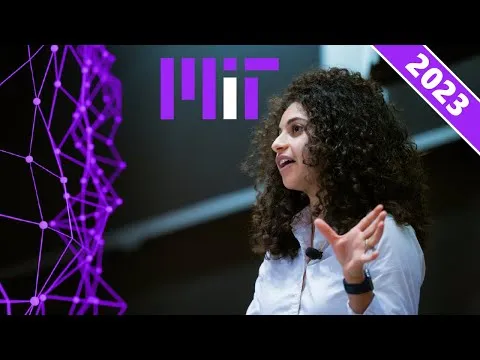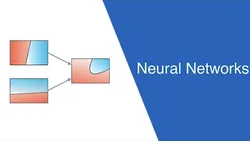
Neural Networks for Signal Processing - I 
This course provides an introduction to neural networks for signal processing. Learn how to build artificial neural networks inspired by the human brain, and explore topics such as Rosenblatt's perceptron, regression modeling, multilayer perceptron (MLP), kernel methods, support vector machines (SVM), regularization theory, and principal component analysis. Suitable for graduate students, senior undergraduates, engineers, and scientists in related industries. Prerequisites include basic mathematical background in probability, linear algebra, signals and systems or equivalent. ▼
ADVERTISEMENT
Course Feature
![]() Cost:
Cost:
Free
![]() Provider:
Provider:
Swayam
![]() Certificate:
Certificate:
Paid Certification
![]() Language:
Language:
English
![]() Start Date:
Start Date:
29th Jul, 2019
Course Overview
❗The content presented here is sourced directly from Swayam platform. For comprehensive course details, including enrollment information, simply click on the 'Go to class' link on our website.
Updated in [June 30th, 2023]
This course, Neural Networks for Signal Processing - I, is an introductory graduate level course in neural networks for signal processing. It is part-I of a III part series on neural networks and learning systems. The course will cover topics such as Rosenblatt’s perceptron, regression modeling, multilayer perceptron (MLP), kernel methods and radial basis functions (RBF), support vector machines (SVM), regularization theory and principal component analysis (Hebbian and kernel based). Additionally, topics such as convolutive neural networks will be touched upon. The course will have assignments that are theoretical and computer based working with actual data.
This course is intended for graduate level students, senior undergraduate students, engineers and scientists within related industry. Basic mathematical background in probability, linear algebra, signals and systems or equivalent is required. The course is AI based and machine learning based.
[Applications]
The application of this course can be seen in the industry, where engineers and scientists can use the knowledge gained from this course to develop AI and machine learning based systems. The course provides a comprehensive overview of neural networks and learning systems, which can be used to develop systems that can process signals and optimize tasks. The course also covers topics such as regression modeling, multilayer perceptron (MLP), kernel methods and radial basis functions (RBF), support vector machines (SVM), regularization theory and principal component analysis (Hebbian and kernel based). This knowledge can be used to develop systems that can accurately process signals and optimize tasks.
[Career Paths]
One job position path that could be recommended to learners of this course is a Signal Processing Engineer. Signal Processing Engineers are responsible for designing, developing, and testing signal processing systems and algorithms. They use mathematical models and algorithms to analyze and process signals, such as audio, video, and radio signals. They also develop software and hardware systems to process signals, and use signal processing techniques to improve the performance of communication systems.
The development trend for Signal Processing Engineers is to become more specialized in the field of artificial intelligence and machine learning. As AI and ML become more prevalent in the industry, Signal Processing Engineers will need to be able to understand and apply these technologies to their work. They will also need to be able to develop and implement algorithms that can process and analyze large amounts of data. Additionally, they will need to be able to develop and maintain systems that can process signals in real-time.
[Education Paths]
The recommended educational path for learners interested in Neural Networks for Signal Processing is to pursue a Master's degree in Artificial Intelligence or Machine Learning. This degree will provide students with a comprehensive understanding of the fundamentals of neural networks and machine learning, as well as the ability to apply these concepts to real-world problems.
The curriculum of a Master's degree in Artificial Intelligence or Machine Learning typically includes courses in mathematics, computer science, and statistics. Students will learn about the fundamentals of neural networks, including the architecture, algorithms, and optimization techniques. They will also learn about supervised and unsupervised learning, deep learning, and reinforcement learning. Additionally, students will gain experience in programming languages such as Python and R, and will be able to apply their knowledge to real-world problems.
The development trend of this degree is to focus on the application of neural networks and machine learning to solve real-world problems. This includes the development of new algorithms and techniques to improve the accuracy and efficiency of neural networks, as well as the development of new applications for neural networks in areas such as healthcare, finance, and robotics. Additionally, the development of new technologies such as quantum computing and blockchain will continue to drive the development of this field.
Course Provider

Provider Swayam's Stats at AZClass
Discussion and Reviews
0.0 (Based on 0 reviews)
Explore Similar Online Courses

Astrophysics: Exploring Exoplanets

Free Mindfulness Tutorial - Mindfulness for Individuals: Mindfulness and Neuroscience

Python for Informatics: Exploring Information

Social Network Analysis

Introduction to Systematic Review and Meta-Analysis

The Analytics Edge

DCO042 - Python For Informatics

Causal Diagrams: Draw Your Assumptions Before Your Conclusions

Whole genome sequencing of bacterial genomes - tools and applications

MIT 6S191: Recurrent Neural Networks Transformers and Attention

Neural Networks


Start your review of Neural Networks for Signal Processing - I